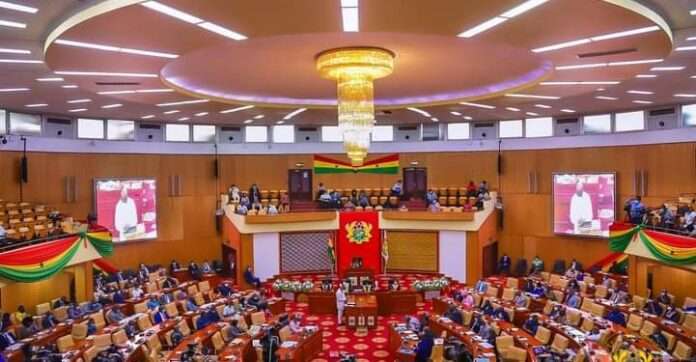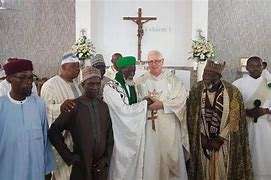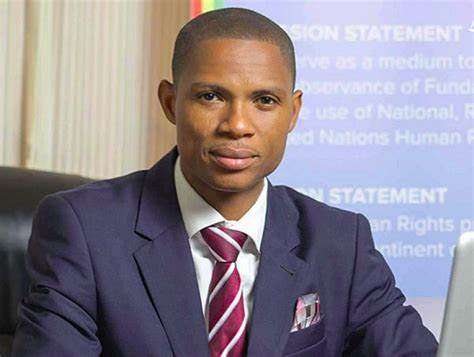In a significant move, Francis Xavier Sosu, the Member of Parliament for Madina, has put forward a private members bill aimed at reforming the public holidays celebrated in Ghana. The proposed legislation suggested merging certain holidays and introducing two additional holidays for Muslims in the country, strategically placed before Eid-ul-Fitr and after Eid-ul-Adha.
The comprehensive bill, officially titled the “Public Holidays (Amendment) Bill, 2023”, has been formally submitted to the Clerk of Parliament for legislative drafting before its introduction to the parliamentary floor. The bill seeks amendments to the existing Public Holidays (Amendment) Act, 2001 (Act 601), with the intent of reshaping how holidays are recognized and celebrated in Ghana.
The bill advocates for the removal of the President’s authority to unilaterally declare additional public holidays. Instead, holidays falling on Fridays, Saturdays, Sundays, and Mondays will be observed on those days without the need for a presidential proclamation.
The President would be granted the authority to merge public holidays through executive instruments. This allows for flexibility in scheduling holidays, ensuring their observance remains practical and efficient.

If a public holiday falls on a productive working day between Tuesday and Thursday, the bill proposes that the celebration or observation of that holiday be moved to the following Friday. This aims to optimize productivity while maintaining the recognition of public holidays.
Notably, the proposed amendments exempt Islamic holidays from the provisions related to merging and postponing. This acknowledges the unique cultural and religious significance of Islamic holidays.
The bill also calls for the removal of criminal sanctions for non-observance of public holidays. This shift emphasizes a more flexible approach, allowing individuals and businesses greater autonomy in deciding how to observe or not observe holidays.
As the proposed amendments await further legislative consideration, it has ignited a robust debate in Parliament. Supporters have argued that the changes would enhance efficiency and flexibility in the recognition of public holidays, while critics express concerns about potential impacts on tradition and cultural practices.
This proposed legislation reflects an ongoing effort to adapt Ghana’s public holiday framework to contemporary needs and considerations. The coming parliamentary discussions are expected to provide a platform for thorough examination and deliberation on the merits and implications of the proposed changes.
Bill To Promote National Cohesion
Ghana’s journey towards religious tolerance has been a remarkable testament to the nation’s commitment to unity and cohesion. With a diverse religious landscape comprising Christianity, Islam, traditional African religions, and other faiths, Ghana has successfully woven a web of religious harmony over the years.

Historically, Ghana’s founding fathers, recognizing the potential for diversity to strengthen rather than divide, laid the foundation for a nation that values and respects all religious beliefs. The Constitution of Ghana guarantees religious freedom, fostering an environment where individuals can practice their faith without fear of discrimination.
Interfaith dialogue has played a pivotal role in bridging gaps and fostering understanding among different religious communities. The collaborative efforts of religious leaders, organizations, and institutions have led to initiatives promoting tolerance, acceptance, and cooperation.
Ghana’s annual celebration of National Prayer and Thanksgiving events, attended by leaders of various faiths, exemplifies the country’s commitment to inclusivity. These gatherings serve as a powerful symbol of unity, where Ghanaians, irrespective of their religious affiliations, come together to pray for the nation’s prosperity and well-being.
The coexistence of religious practices and traditions is visible in everyday life, from shared public spaces for worship to the celebration of religious festivals by the broader community. This spirit of religious tolerance has not only strengthened Ghana’s social fabric but has also contributed significantly to its national identity, emphasizing the importance of unity in diversity.
The bill thus presents an opportunity for further aggregation of aims made on that front as well as, improve industry and reduce executive powers.
READ ALSO: November Inflation Drops To 26.4% From 35.2%




















